Failure corrupts as much as power does, and when the powerful fail they make others pay for their disappointment. To understand why this government lashes out at all who contradict it like a drunk throwing haymakers in a pub car park, remember that, by their own standards, today’s Tory ministers are abject failures.
Nothing about their time in office has turned out the way they expected. Traditionally, the left accuses Labour governments of selling out. In front of the mirror, when nobody is watching, today’s Conservative ministers can accuse themselves.
To get a measure of their disappointment, dig out a copy of Britannia Unchained, a manifesto from 2012 to restore the UK’s prosperity, by the then largely unknown politicians Kwasi Kwarteng, Priti Patel, Dominic Raab, Chris Skidmore and Liz Truss. All are in the Cabinet today, apart from the luckless Skidmore, who remains a junior minister.
I’ve just finished rereading their effort, and as political pamphlets go it is not so bad. The authors spell out their argument well. They deploy international comparisons to show sickly Britain’s weaknesses: look at how Canada reduced its debt, why can’t we? Look at how Germany raised its educational standards, while our young were anaesthetised with easy and worthless courses. The confidence of young politicians who believe they know how to end the dead hand of the Labour government of 1997 to 2010 pushes their writing on.
As a prediction of what the Unchained authors would do in power it is useless. The reader looking for a guide to the future in 2012 would have been better off reading young adult fiction.
The wannabe leaders of the nation emphasised that Britain won’t succeed unless business succeeds:
‘We should stop indulging in irrelevant debates about sharing the pie between manufacturing and services, the north and the south, women and men. Instead, we should focus on trying to make it easier for firms to recruit people and ensuring the tax burden is less onerous.’
Later, and in the same vein, they denounce all who think ‘business is a dirty word,’ and continue:
‘Britannia Unchained is unembarrassed about its support for business and the profit motive.’
These are lines that read ill in 2021 from ministers who have taken British business out of the world’s largest single market, and then, despite Brexit and despite Covid, are hitting it with corporation and national insurance tax rises. Beyond the trade barriers and growing tax burden is the growling grievance mongering that so characterises the Johnson government.
After ministers explained away labour and supply shortages by saying business was ‘drunk’ on cheap foreign labour, Craig Beaumont, chief of external affairs at the Federation of Small Businesses, exploded:
‘Where’s the party of business? The media were apparently to blame for the fuel crisis, then it was consumers to blame, and now business is to blame for low wages and supply chain shortages. It’s striking out at anyone they can find’.
As failures always do.
Back in 2012, today’s Secretaries of State warned we might turn into Greece. The economies of Southern Europe shared with Britain, we were told, ‘a large, bloated public sector; increasingly large liabilities regarding pensions in the public sector; too much spending and too little growth; poor productivity.’
That may not have been an accurate description of the UK then but it is now.
The future Tory high command mounted their high horses and declared that we had an urgent need to invest in engineering, science and maths so that we could produce students who could take on the challenge from Asia. If we did not, we would still have our world-class universities but they would become ‘an academic premier league’ whose excellence relied on foreign students rather than native talent.
Nothing of the sort has happened. Education spending peaked in 2010, the last year of the Labour government, at 5.5 per cent of GDP. It fell and kept falling during the decade of Conservative power.
The Tories may not be the party of business. Their post-Brexit Britain is a refutation of Marxist and all other economic determinist theories of politics. Brexit has not led to the ultra-Thatcherite UK its right-wing supporters wanted and left-wing remainers feared because the Conservatives remain the party of a type of privilege.
The Tories are the party of the old, winning 57 per cent of voters aged between 60 and 69 and 67 per cent of the over-70s in the 2019 election. Pensioner benefits and NHS spending must be increased to maintain pensioner support. The Conservatives have to tax employers and the working-age population because new land and property taxes – or taking a part of the value of pensioners’ homes to fund social care – would offend the interests of the aged homeowners who maintain its grip on power.
Locking down the grey vote is a brilliant electoral strategy. But when Rishi Sunak promised a budget for a ‘new age’ yesterday he was fantasising. The Tories won’t properly invest in educating the young or lessen burdens on business or focus aid on people who might become productive citizens because they are the party of old age not a new age; of the people who left school decades ago and left work years ago and have little interest in either now.
Conservative politicians who said in 2012 that they would preside over a politics that would put in the ‘fundamental graft, risk and effort that bring long-term rewards,’ now preside over a stagnant statist society that privileges the old over the young and the rent-seeker over the entrepreneur.
It is small wonder they lash out. Small wonder that Dominic Raab, once an apostle of liberty, is now such a danger to the rule of law he says he wants to ‘correct’ judgements in certain cases that go against ministers. Small wonder that the attacks on broadcasters who ask hard questions are now developing a Putinesque level of menace, with ministers warning that the BBC will pay for failing to show Boris Johnson the deference he expects and demands.
The silencing of critics is what you should expect from a generation of politicians who can expect to stay in power for as far ahead as anyone can see, but know that the only way they can stay there is by abandoning the principles that first brought them into politics.
As Jean-Jacques Rousseau nearly said, Tories are born free but are everywhere in chains. And they will make sure that the rest of us suffer for it.
Got something to add? Join the discussion and comment below.
Get 10 issues for just $10
Subscribe to The Spectator Australia today for the next 10 magazine issues, plus full online access, for just $10.


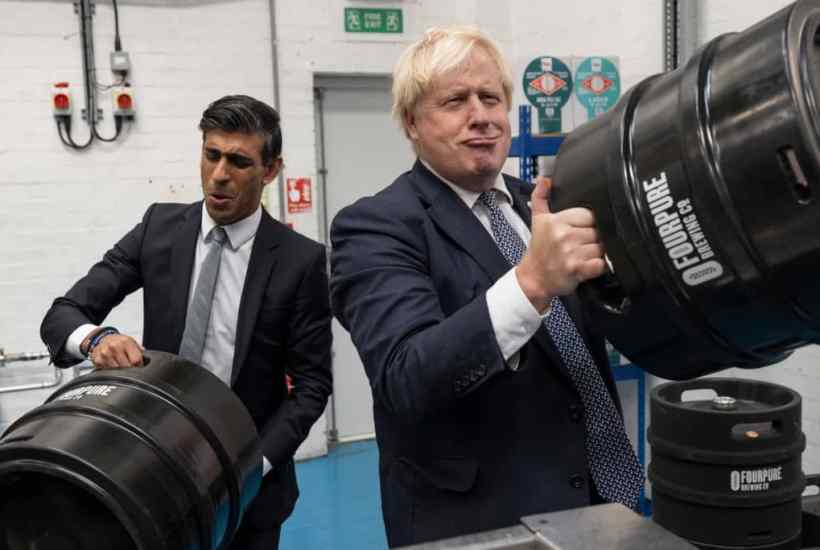
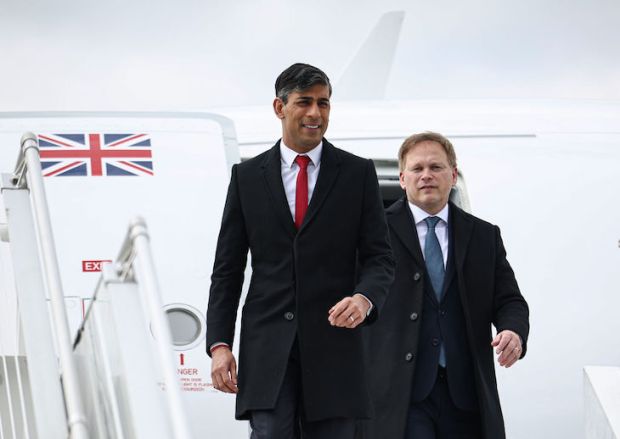

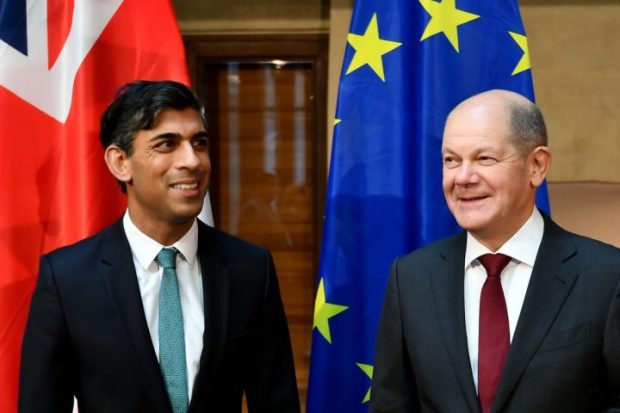
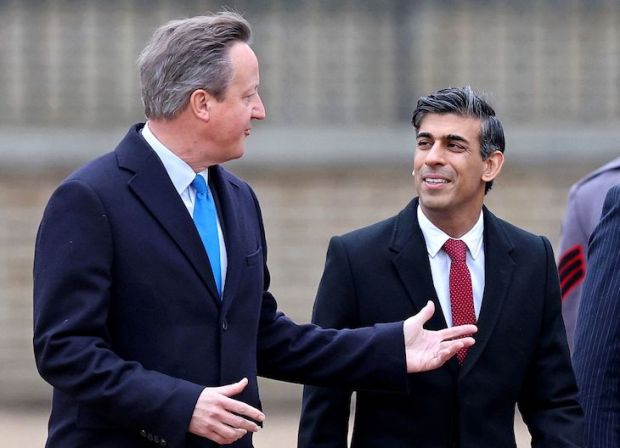

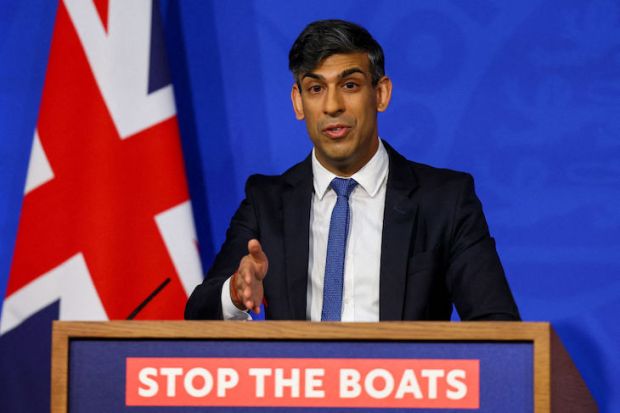












Comments
Don't miss out
Join the conversation with other Spectator Australia readers. Subscribe to leave a comment.
SUBSCRIBEAlready a subscriber? Log in